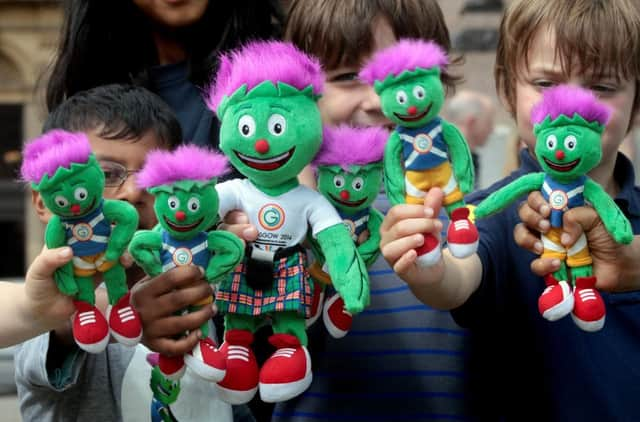One billion to watch Glasgow 2014 opening ceremony


But a Scottish paediatric neurologist has urged people to help support a leading children’s charity’s work in one of the world’s poorest nations in a heartfelt account that will form part of the Glasgow 2014 opening ceremony.
Iain Horrocks, who works at Glasgow’s Yorkhill Royal Hospital for Sick Children, will reveal first-hand the “devastating effect” conditions such as malaria and pneumonia have on the lives of children in Malawi.
Advertisement
Hide AdAdvertisement
Hide AdSpectators inside Celtic Park, as well as an estimated global television audience of one billion people, will hear Mr Horrocks hail the “world-changing” work of Unicef in what is expected to be one of the most touching moments of Wednesday’s ceremony.
Mr Horrocks travelled to the country alongside Britain’s greatest ever Olympian Sir Chris Hoy, a Unicef ambassador.
The expert in rare neuromuscular conditions, who used to be a flying doctor in New Zealand, toured parts of Malawi by bike with Sir Chris, accompanied by a local health assistant, Daniel, who helps youngsters who are suffering.
The experience, which is documented by the medic in an emotionally charged diary that will form part of the ceremony, left the father-of-three shocked.
He said: “I didn’t really know what to expect when I got on the plane to head for Malawi.
“I was worried that I would find the cycling quite gruelling, but that was quickly forgotten when we finally arrived at the remote village health clinic where mothers and their babies were waiting patiently in a line to see Daniel.
“Daniel is the mobile health assistant for the area and travels twice a week across incredibly rocky, dusty terrain to carry out his life-saving work at this village clinic.
“When we joined him on our bikes they were out of action after just half an hour so we had to rely on an impromptu bike workshop at the side of the road to help us get back up and running again.
Advertisement
Hide AdAdvertisement
Hide Ad“When we watched Daniel help his patients for conditions like malaria, diarrhoea and pneumonia it dawned on Chris and me how much of a lifeline he provides, with his bike – the complete reliance a whole community has on something as simple as that.”
Sir Chris and Mr Horrocks, who helps organise an annual outing for his young patients at Yorkhill and their parents, also visited a hospital in Dedza, an experience he said would forever stay with him.
“Four children had died that week with malaria, that’s a disaster in itself. I’ll never forget the odour of death there and the expectation of it in the eyes of parents as their young ones lay lifeless,” he added.
“There were so many children here, and babies with conditions you could manage relatively simply at home with very little intervention.
“For very little cost, very little medicine you could make a huge difference to that one child. But the priorities here are not for one child, they’re for the whole population.”
The opening ceremony will also feature the stories of four other so-called “Flying Scots” who travelled to Malawi with high-profile ambassadors.
Glasgow 2014, the Commonwealth Games Federation (CGF) and Unicef have forged a partnership in a bid to improve the lives of children in every country in the Commonwealth through raising money for the Children of the Commonwealth Fund, in the run-up to and during the Games.